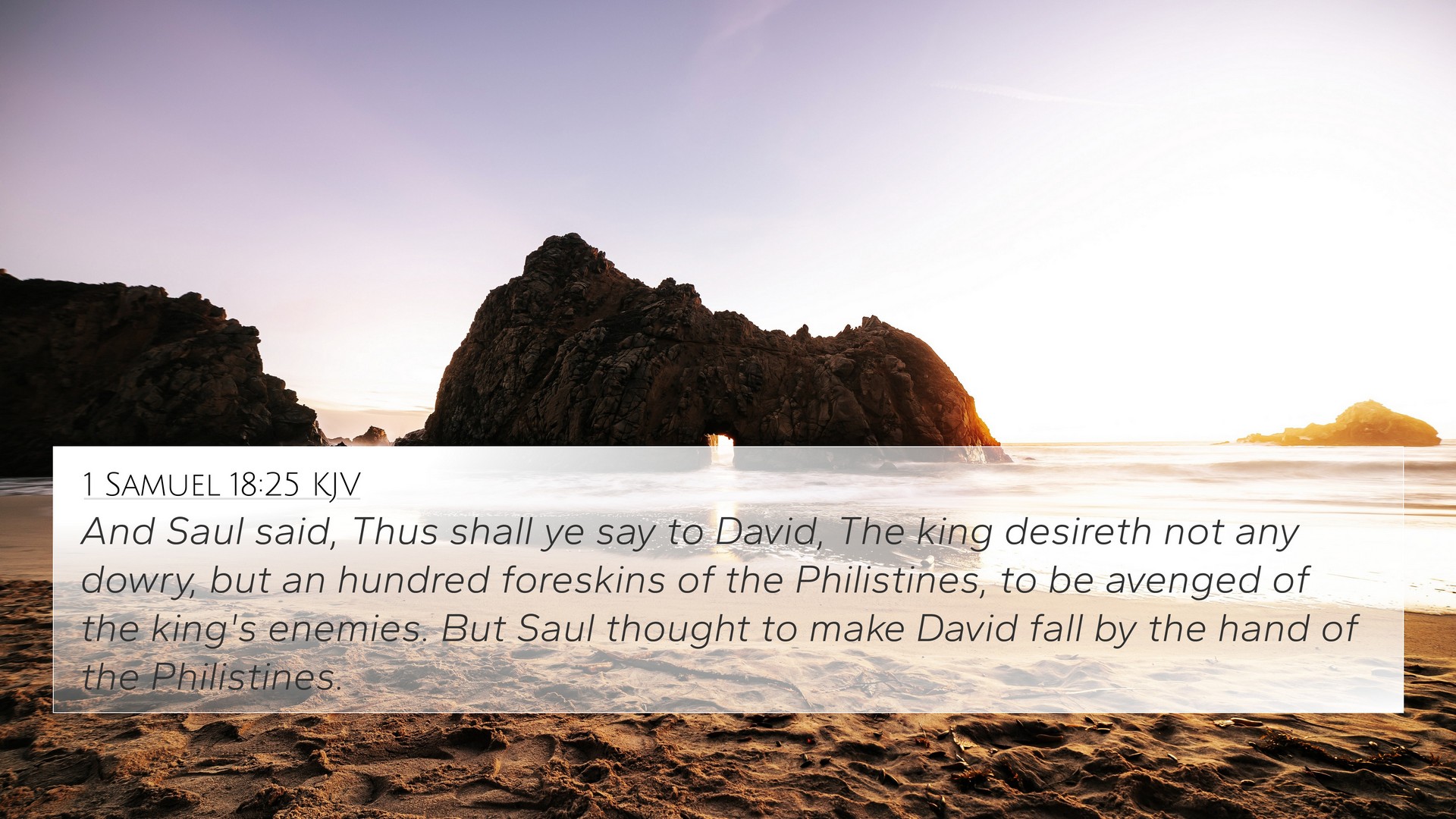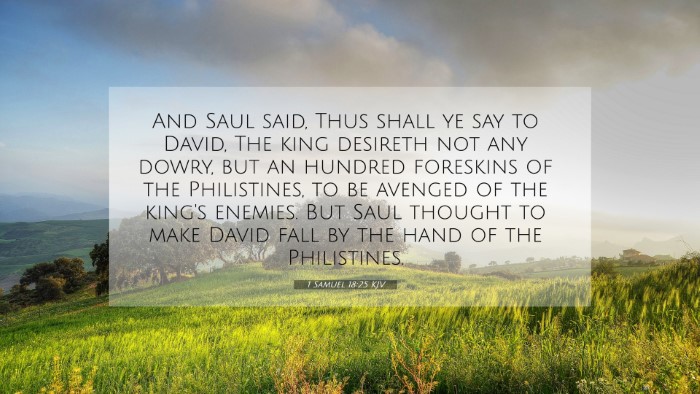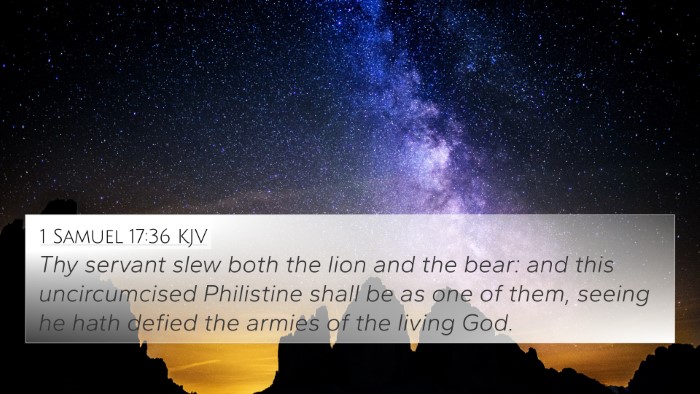Understanding 1 Samuel 18:25
In 1 Samuel 18:25, King Saul presents a challenge to David, asking him to fetch a dowry for his daughter Michal. The verse reads:
"But Saul said, 'Thus shall you say to David: “The king does not desire any dowry except a hundred foreskins of the Philistines, to take vengeance on the king's enemies.”' But Saul thought to make David fall by the hand of the Philistines." (1 Samuel 18:25, ESV)
Summary of the Verse
This verse illustrates Saul’s cunning and treacherous intent towards David, reflecting his growing jealousy and desire to eliminate David, whom he perceives as a threat.
Commentary Insights
Matthew Henry's Commentary
Matthew Henry notes that Saul’s request for foreskins indicated a cruel and bloody test aimed at setting David up for failure. Henry emphasizes the contrast between Saul’s apparent respect for the kingly position and his underlying malice.
Adam Clarke's Commentary
Adam Clarke expands on the socio-cultural implications of Saul's demand, suggesting that the request was intended to humiliate David and increase the danger he faced. Clarke points out that this act not only reveals Saul’s hostility but also illustrates David's extraordinary bravery and loyalty, as he later fulfills this daunting request.
Albert Barnes' Commentary
Albert Barnes provides a historical context, explaining that the foreskins were meant to symbolize David's conquest over the Philistines. Barnes adds that this request was not just a test of valor but a strategic plan to dispose of David under the guise of royal duty.
Cross-References
Several Bible verses provide additional context, echo thematic connections and enhance the understanding of 1 Samuel 18:25. Here are some key cross-references:
- 1 Samuel 18:2 - This verse discusses the initial bond formed between Saul and David, establishing their relationship before jealousy took root.
- 1 Samuel 18:17-19 - Indicates Saul’s changing attitude towards David, highlighting the plans that lead to this dangerous request.
- 1 Samuel 19:1 - Shows Saul’s continued scheming against David, reinforcing the latter’s position as a target of jealousy.
- 2 Samuel 1:14-16 - Reflects back on David's victories and Saul's eventual demise as a result of his actions against him.
- 1 Samuel 21:9 - David's proclamation of his loyalty can be compared to Saul's source of insecurity.
- 2 Samuel 23:1-4 - Highlights David's righteous leadership, contrasting Saul’s despondent and treacherous rule.
- Psalm 59:1-2 - A psalm attributed to David during his flight from Saul captures the emotions tied to this historical conflict.
Thematic Connections
The themes of jealousy, ambition, and divine providence run throughout the narrative of 1 Samuel. Saul’s actions not only showcase human frailty in leadership but also prepare the stage for David's eventual rise as a beloved king. Understanding these connections provides deeper insight into the relationships and tensions present within the text.
Conclusion
1 Samuel 18:25 serves as a crucial pivot in the narrative of Saul and David, demonstrating the lengths to which jealousy can drive a leader and the divine plans at work despite human motives. By cross-referencing related verses and considering various commentary perspectives, readers can gain a richer understanding of this pivotal moment in the biblical narrative.












